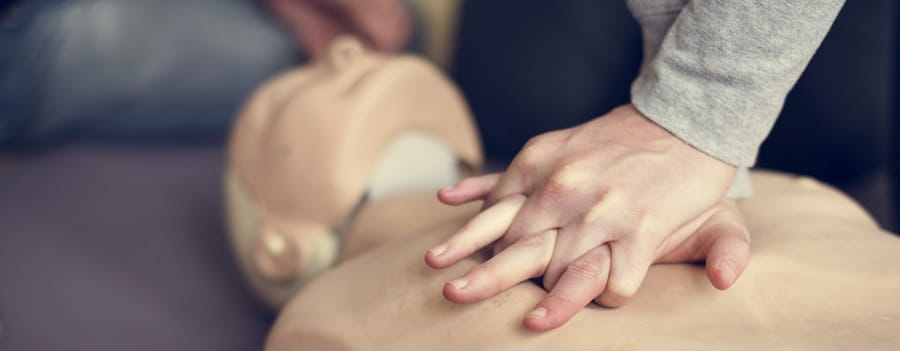
There is debate around whether compression-only, or ‘hands-only’ CPR is as effective as standard CPR that includes rescue breaths. There have been numerous studies conducted, however the available data provides conflicting evidence.
Any attempt at resuscitation is better than no attempt. Hands-only CPR was developed as a way of encouraging bystanders who are uncomfortable giving rescue breaths to perform some form of CPR in an emergency.
Strategies to improve the number of cardiac arrest patients receiving CPR from bystanders should be encouraged, however not to the abandonment of conventional CPR. Rescuers who are unwilling or unable to do rescue breathing should perform chest compressions as a first step. This should be followed as soon as possible by rescue breathing from someone trained and willing to do so.
Royal Life Saving WA follows the Australian Resuscitation Council’s guidelines of 30 chest compressions followed by two rescue breaths.
In certain situations, hands-only CPR won’t be effective and the casualty will require rescue breaths to have any chance at survival:
When the initial cause was respiratory failure
Cardiac arrest can happen as a result of a respiratory problems such as drowning, choking, allergic reactions or an asthma attack. In this type of incident, by the time cardiac arrest occurs, the blood is already low in oxygen so hands-only CPR would just be pushing deoxygenated blood around the body.
When the casualty is a young child or infant
Young children generally have healthy hearts, so if CPR is needed it is often a respiratory problem rather than a heart problem (unless a heart condition is present). This is similar to an adult drowning or choking victim where the blood is already deoxygenated by the time cardiac arrest occurs, and the patient will need rescue breaths to pump oxygen into their system.
When the person has been in cardiac arrest for some time
If you didn’t see the person collapse, i.e. you found them in their collapsed state, and you have no idea how long they’ve been in cardiac arrest then they are likely to need rescue breaths. Again, the blood is more likely to already be depleted of oxygen.